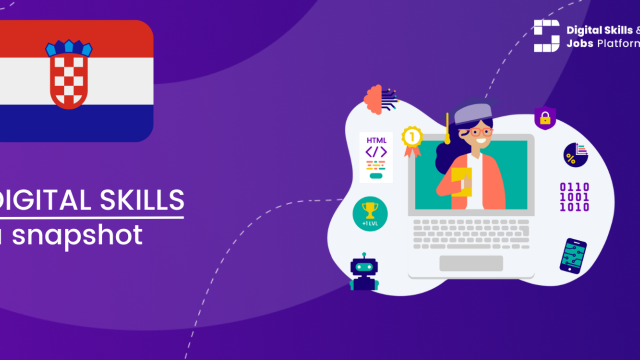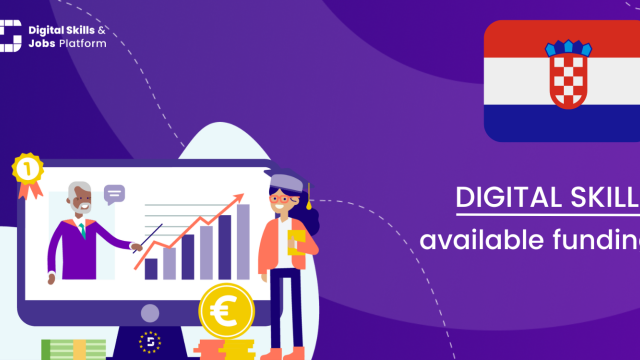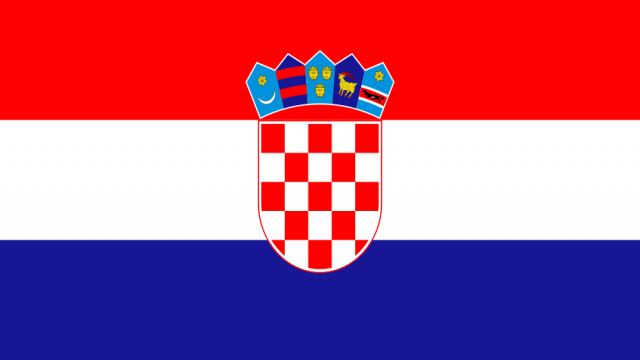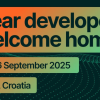Croatia
Croatia has achieved 59% basic digital skills coverage, slightly more than the EU average of 55.56%. This puts Croatia at 73.8% of the overall target for the EU 2030 goal, which aims to have 80% of the EU population possessing at least basic digital skills. According to the Digital Decade report 2025, the percentage of ICT specialists in employment is the same with the EU average, despite increasing from 4.3% to 5% (EU average - 5%) in 2024. The share of female ICT specialists increased from 17.5% in 2023 to 21.5% in 2024, surpassing the EU average of 19.5%.
Croatia has made strong progress in digital infrastructure and cybersecurity but continues to face challenges in SME digitalisation and the uptake of advanced technologies. The country is also strengthening its position in strategic tech sectors like quantum communication and semiconductors.
State strategies in Croatia include the National Development Strategy, which emphasizes the digital and green transition of the society and economy. The 'Grow Croatia with Google' Programme has trained 37,000 people and supported 10,000 SMEs for digital transformation. The e-School programme aims to digitize all schools in Croatia by 2023, while the School of the Future initiative connects schools with tech projects, reaching over 4,000 students in 200 schools.
Croatia ranks 14th out of the 27 EU Member States in the DESI dashboard for the Digital Decade for the 'At least basic digital skills' indicator, with 59% of its population possessing at least basic digital skills.







